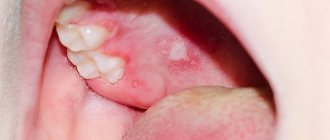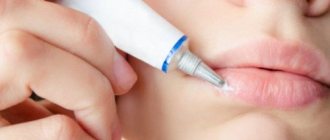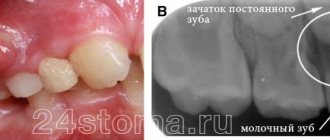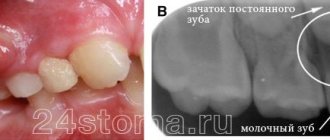What kind of pathology is this
Herpetic gingivitis is an inflammatory lesion of the gums caused by the introduction of a herpes viral infection into their mucosa. This infection is considered highly contagious and can be contracted anywhere, on the street and in public places. During the cold season, there are more cases of this infection. Its source is a sick person. Often this disease becomes a complication of viral stomatitis.
The virus is transmitted to children in the following ways:
- contact;
- household;
- airborne;
- hematogenous.
The first introduction of the virus into the baby’s body is manifested by gingivitis and stomatitis.
Principles of treatment of herpes virus on the gums
We found out whether herpes can appear in the mouth, and now it’s time to figure out how to treat the disease. So, we have already examined the symptoms in detail, and it remains to talk about the basic principles of treatment. As part of antiviral therapy, drugs such as Amiksin, Anaferon or Ergoferon are usually prescribed. In this case, the course, as a rule, begins with the maximum dose - 1 tablet several times a day. Also prescribed are products for external use - ointments "Acyclovir", "Zovirax" or "Gerpevir".
Ointment will help speed up treatment
In order to relieve acute symptoms, it is recommended to rinse with various antiseptics - they help restore the normal microflora of the oral cavity and prevent the viral infection from spreading further. The most commonly prescribed solutions are Miramistin and Chlorhexidine. Since the main provoking factor is a drop in the body’s defenses, the patient must also undergo immunomodulatory therapy - take a course of vitamins and minerals. Additionally, it is worth enriching your diet with fresh vegetables and fruits, freshly squeezed juices. It is recommended to drink sea buckthorn juice and rosehip infusion. In advanced stages of the disease, injections with aloe extract and B vitamins and antibiotics may be prescribed.
Causes
Often a child gets sick for the first time during teething. It prevents you from brushing the area where the tooth is erupting. As a result, infection accumulates in this place and inflammation of the gum tissue occurs, which gradually spreads. It is aggravated by frequent allergic reactions to introduced complementary foods.
In older children, pathology is provoked by the following reasons:
- mechanical microtraumas - damage to gum tissue occurs when brushing teeth with hard brushes or hard food when biting it;
- the introduction of herpes is provoked by other viral or infectious lesions of the oral cavity;
- the presence of polyps in the nasal cavity and breathing problems contribute to the penetration of an infectious agent into the gum tissue;
- an incorrect bite in a child leads to constant trauma to the mucous membrane and the development of inflammation;
- lack of nutrients, vitamins and microelements in the baby’s diet reduces local immunity;
- the manifestation of a viral infection is provoked by burns in the mouth;
- Dental diseases (caries, pulpitis) contribute to the development of the virus in the gum tissue, weakening local immunity.
The infection spreads to other tissues quite quickly, and isolated gum damage spreads to periodontal structures.
How does herpes develop in the body?
According to statistics, more than 80% of all inhabitants of the planet are carriers of the herpes virus. The infection easily enters the bloodstream and instantly spreads throughout the nervous system. Once in the human body, it approaches a cluster of cells in the brain - the trigeminal ganglion. There, the virus seems to hibernate until some factor provokes its activation. Then the infection makes its way back from the brain to the oral cavity, where painful ulcers appear, which are considered the main sign of herpes activity.
Why does herpes appear on the gums?
In the process of its development, pathology passes through six main stages, standing in strict sequence:
- first, a person experiences sensations of itching and tingling in the mucous membrane - these are the main precursors of the problem,
- then the mucous membrane slightly reddens and swells, discomfort appears, which is especially acute during meals,
- after this, several watery blisters appear in the affected area,
- when the blisters burst, painful sores remain in their place,
- at the next stage, the ulcers heal, forming a fairly hard crust covered with tiny cracks,
- at the final stage, the crust gradually dissolves, leaving no traces.
All this can last from 1 to 2 weeks. It is also worth noting that herpes on the gums is often confused with stomatitis. In order not to be mistaken, you need to remember the following: when stomatitis develops, active ulcers immediately appear in the oral cavity, while with herpes they are preceded by blisters full of fluid - this is the key symptomatic difference.
Symptoms
Signs of herpes gingivitis in a child do not appear immediately after infection. Its latent period lasts up to eight days. The disease begins abruptly. At first, the baby becomes capricious, lethargic and restless. He sleeps poorly, refuses to eat, and complains of pain in his mouth.
After some time, the following manifestations of the disease appear:
- high temperature up to 39 degrees;
- increased salivation;
- gums become swollen and red;
- intergingival papillae increase;
- the oral mucosa is swollen;
- the tongue swells and becomes covered with a white coating;
- blistering rashes on the mucous membranes and skin around the mouth;
- nearby lymph nodes enlarge;
- headache;
- bad breath;
- general malaise;
- burning.
In place of the blisters, when they burst, ulcers appear that do not heal for a long time. All other manifestations disappear within a week, but they persist for up to fourteen days.
Causes of oral diseases
Infectious diseases.
Sometimes inflammation occurs against the background of an infectious disease. The provoking factor can be a herpes virus, influenza, etc. The most common cause of inflammation is the herpes simplex virus.
Mechanical damage.
The oral cavity can become damaged as a result of a blow, injury from a foreign object, or unsuccessful biting. Usually, after an injury, pain immediately occurs, and then a small hemorrhage forms in the form of erosion, ulcer or hematoma. Mechanical damage can be chronic, and this problem is not uncommon. For example, the cause of regular injuries to the mucous membrane are sharp edges of the teeth, dentures that are not fitted correctly, as well as bad habits such as biting the cheek, lips, etc.
Physical damage.
Physical damage includes electrical shock, exposure to low or high temperatures, and radiation. If left untreated, the oral cavity becomes inflamed and ulcers and blisters can form.
Chemical damage.
The oral cavity can be injured when the mucous membrane comes into contact with acids or highly concentrated alkalis, for example, due to an error in production or carelessness at home. After an acid burn, a thick film appears on the mucous membrane, and redness and swelling appear at the edges. When an alkali burn occurs, the deep layers of the mucous membrane are often affected, so a film does not form, but erosions and ulcers occur, which take a long time to heal and painfully.
Note!
Contact your doctor immediately if the following symptoms appear:
- acute pain at the site of injury, increased body temperature;
- discharge of purulent contents when pressing on the gums;
- the formation of sores or areas covered with a white coating on the gums, tongue or mucous membrane;
- appearance (increase) of tooth mobility;
- difficulty chewing food;
- the duration of the inflammatory process is more than 3-5 days.
Up to contents
Diagnostics
The diagnosis of herpes gingivitis is quite easy for a child to make, since the disease has characteristic clinical manifestations. The diagnosis is made by the dentist based on an examination of the baby’s oral cavity and data on the course of the disease. Characteristic formations on the mucous membrane and manifestations of inflammation in the mouth clearly indicate that this is a specific lesion. To clarify the nature of the lesion, the doctor prescribes general blood and urine tests. If the disease is severe, it is necessary to clearly identify the type of pathogen. In this case, specific laboratory research methods are used.
These include:
- virological study;
- polymerase chain reaction;
- immunofluorescence method;
- HSV test for the determination of immunospot G-specific glycoprotein;
- serological test with immunoglobulin M.
These methods determine with a high degree of accuracy the type of pathogen in the blood and discharge from ulcers. But they are very expensive and labor-intensive, so they are used quite rarely.
Can herpes appear on the gums and what to do in this case?
When the body's protective functions decrease, outbreaks of inflammatory processes usually follow. Banal hypothermia can provoke activation of the virus and lead to the development of herpes. Small blisters, which are the main sign of the disease, appear not only on the lips, but also on the inner surfaces of the oral cavity. This disease occurs quite often, both in adults and children. To avoid complications, it is important to know how to correctly diagnose and treat herpes on the gums. Read about the main causes and symptoms of this pathological condition further in this article.
Treatment
Treatment of mild forms of herpetic gingivitis in children is carried out on an outpatient basis under the supervision of a physician. In severe cases of the disease, the patient is hospitalized in a hospital. The patient is prescribed a diet with a predominance of pureed food that does not irritate the oral mucosa. It shouldn't be hot. There is no need to give your child solid food to prevent additional injury to the gums.
For mild forms, local treatment is used.
The following drugs are used:
- antiviral agents (Acicovir, Ganciclovir) - destroy the DNA of the virus, use ointment to lubricate the gums up to five times a day for two weeks;
- local anesthetic gels and ointments (Lidochlor gel, Kamistad) - they anesthetize, disinfect, have an anti-inflammatory effect, are used three times a day, two weeks;
- local antiseptics (Iodinol, Miramistin, Hexoral) - these agents rinse the mouth every four hours, two weeks;
- reparative preparations (Solcoseryl-gel, Methyluracil ointment) - applying ointments to ulcers promotes their epithelization and rapid healing, applied three times a day for two weeks.
Herbal infusions (chamomile, rose hips, calendula, sage, St. John's wort, licorice) are widely used for rinsing when gums are damaged.
In severe cases, the baby is prescribed oral medications.
The following drugs are prescribed:
- antiviral drugs (Famciclovir, Acyclovir, Zovirax) - taken according to the regimen prescribed by the doctor, the drug must be taken to the end, otherwise there will be a relapse;
- antihistamines (Suprastin, Tavegil, Citrine) - reduce swelling of gum tissue and reduce pain;
- antipyretics (Panadol, Nurofen) are used to reduce high fever.
Parents should monitor the baby’s oral hygiene; during illness, it is carried out especially carefully. To prevent gum injury, it is recommended to use toothbrushes with soft bristles. It is necessary to treat toys and objects that the baby uses with antiseptics.
Prevention of oral inflammation
Timely visit to the dentist.
The main prevention of inflammatory diseases is timely visit to the dentist. The doctor will prescribe a course of treatment for the oral cavity, eliminate traumatic factors (inappropriate dentures, sharp edges of teeth) and sources of infection (periodontal pockets, carious teeth).
Proper nutrition.
The diet should include food that is complete in composition and quality. It is recommended to consume foods rich in vitamins A, B, C and microelements (fluorine, copper, calcium) that are beneficial for healthy teeth and gums. Carbohydrates are a breeding ground for the development of pathogenic microflora, so their abuse can lead to oral diseases. Food should contain a balanced amount of proteins, fats and carbohydrates. The condition of teeth is negatively affected by the consumption of soft foods, so the diet should include solid foods, especially vegetables and fruits. This is necessary to “train” the chewing apparatus. Special diets for the prevention of diseases have not been developed; the main thing is to adhere to the rules of a healthy diet.
Oral hygiene.
You should brush your teeth 2 times a day: in the morning and before bed. The toothbrush must be chosen individually. Its head should be curved and slightly tapering towards the end. Excessively thick bristles reduce the cleaning effect of the toothbrush and make it difficult to care for. After brushing your teeth, rinse the brush thoroughly under running water and place the bristles up in a glass. Once every 2-3 months, the brush must be changed, as it wears out, which reduces the cleaning effect and leads to the accumulation of microorganisms - the cause of infections that affect the oral cavity. You can clean the interdental spaces using interdental brushes or dental floss. It is also recommended to use mouthwash regularly. Check out the LISTERINE® range of mouth rinses - used twice daily to help maintain healthy teeth and gums.
Up to contents
Herpetic stomatitis: symptoms
Taking into account the nature of the disease and the characteristics of its course in the patient, two forms are distinguished: acute and chronic recurrent. In the first form, the symptoms are very pronounced, the disease is more severe, and all signs usually disappear completely after adequate treatment. In the chronic relapsing form, the symptoms are less pronounced, long periods of remission (“rest”) are observed with periodic relapses.
Acute herpetic stomatitis most often occurs in young children and adolescents. In adults, this disease occurs much less frequently, since their immune system works better and more actively than children's. This disease is also called herpetic aphthous stomatitis, due to specific aphthous ulcers in the patient’s mouth. The main signs of stomatitis in children and adults are:
- Swelling and redness of the mucous membranes of the mouth.
- Single or grouped vesicles with serous contents in small areas of the mucous membrane. When such bubbles collapse, erosive spots with a whitish coating in the center are formed. Such erosions are very similar to true aphthae, so the disease was previously classified as herpetic aphthous stomatitis, although in fact we are talking about two different types of the same disease.
- Pain when eating and drinking, burning and itching in the mouth.
- Weakness, fever, nausea, possibly vomiting and diarrhea. These symptoms almost do not appear with mild degrees of the disease; with moderate and severe degrees they are quite pronounced.
What the oral cavity looks like with herpetic stomatitis can be seen in the photo.
Treatment of herpes in children
It is impossible to eliminate the herpes virus from the body, so the goal of treatment is to reduce its activity , eliminate symptoms by activating the immune system, achieve stable remission and prevent complications.
The most effective medicine against most manifestations of the herpes virus in children is the substance acyclovir. Treatment uses both oral and local medications. Source: I.F. Barinsky, L.M. Alimbarova, A.A. Lazarenko, F.R. Makhmudov, O.V. Sergeev Vaccines as a means of specific immunocorrection for herpetic infections // Questions of Virology, 2014, pp. 5-11
A comprehensive treatment regimen for acute herpetic infection includes:
- antiviral-antiherpetic drugs - tablets, injections and ointments - based on acyclovir;
- surface antiseptics for the prevention of secondary bacterial infections;
- immune stimulants – herbal and interferon derivatives;
- multivitamins and vitamins in therapeutic doses;
- antipruritic antihistamines;
- antipyretics;
- hepatoprotectors – in case of severe intoxication;
- diet therapy with sufficient amounts of protein and exclusion of foods that are sources of arginine.
In severe general condition, bed rest is recommended. Only a doctor can decide how to treat herpes in a child.











